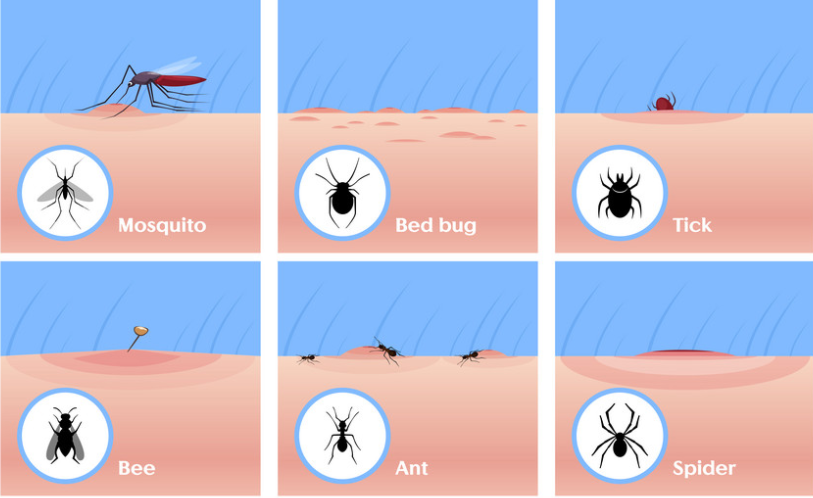
Understanding and Treating Common Insect Bites
Insect bites are a common nuisance that can cause discomfort and, in some cases, more serious health issues. This article provides an overview of various types of insect bites and effective treatments to help you manage and prevent these pesky encounters.
Flea Bites
Fleas are small, wingless insects that feed on the blood of mammals and birds. Flea bites often appear around the ankles and lower legs. To treat flea bites, clean the area with soap and water, apply anti-itch cream or calamine lotion, and consider using oral antihistamines to reduce itching. Avoid scratching to prevent infection.
Lice
Lice are tiny, parasitic insects that infest the scalp and body, causing itching and irritation. Head lice are particularly common among children. Treatment involves using over-the-counter or prescription lice treatments, washing clothing and bedding in hot water, and using a fine-toothed lice comb to remove nits. Prevent the spread by avoiding sharing personal items.
Mosquito Bites
Mosquito bites are common, especially in warm, humid climates. These bites can sometimes transmit diseases. To treat mosquito bites, clean the area with soap and water, apply a cold compress to reduce swelling, and use anti-itch creams or antihistamines. Avoid scratching to prevent infection.
Tick Bites
Ticks are small arachnids that attach to the skin and feed on blood. They can transmit diseases, making prompt removal crucial. Use tweezers to remove the tick, clean the area with soap and water, and apply antiseptic. Monitor for signs of illness and seek medical attention if symptoms develop.
Wasp Stings and Bee Stings
Wasp and bee stings can be painful and sometimes cause severe allergic reactions. To treat stings, remove the stinger if present, clean the area with soap and water, apply a cold compress to reduce swelling, and use pain relievers and antihistamines. Seek emergency medical help if severe reactions occur.
Conclusion
Understanding the different types of insect bites and their treatments can help you manage symptoms effectively and prevent complications. Practice good hygiene and take preventive measures such as using insect repellent and wearing protective clothing. For more detailed information on symptoms and further advice on insect bite prevention and treatment, visit our website. Stay safe and bite-free!